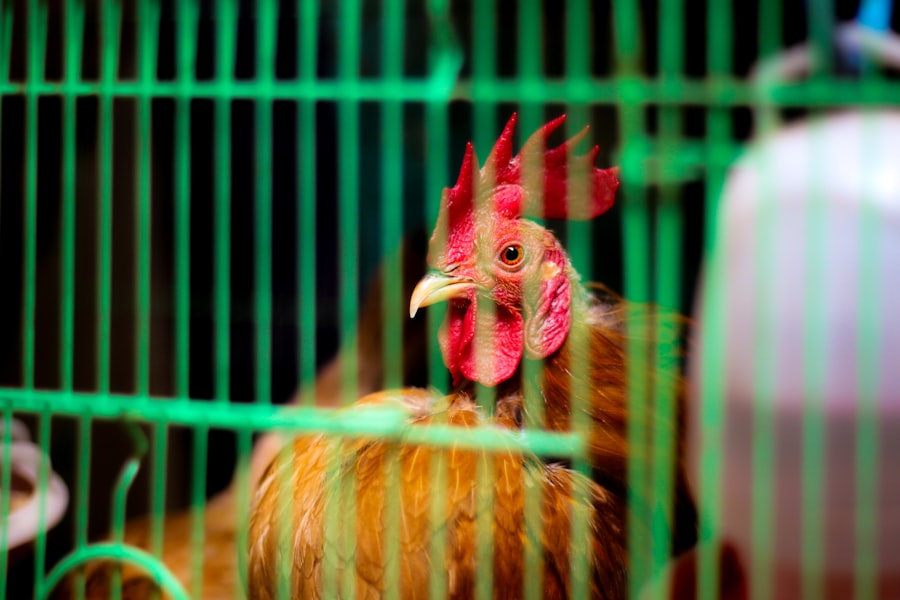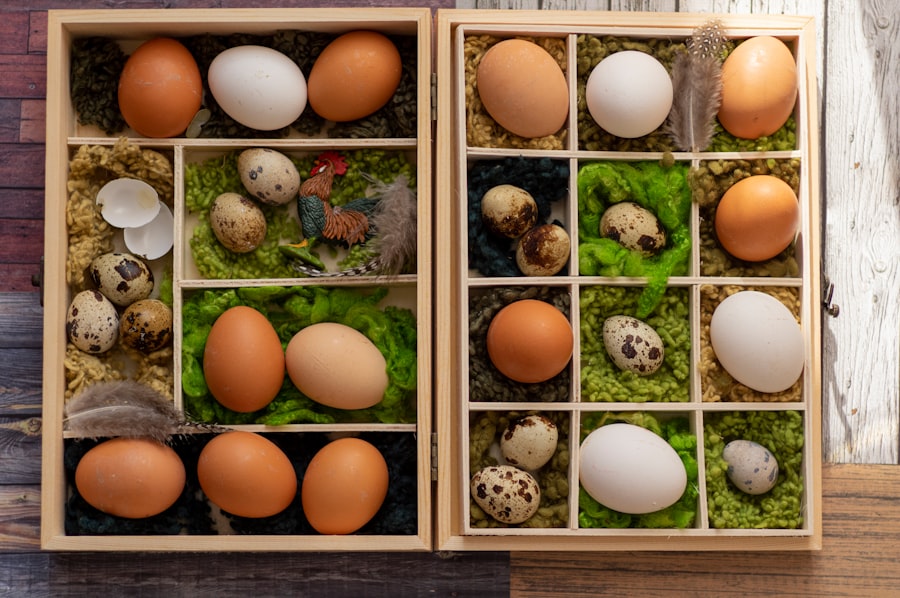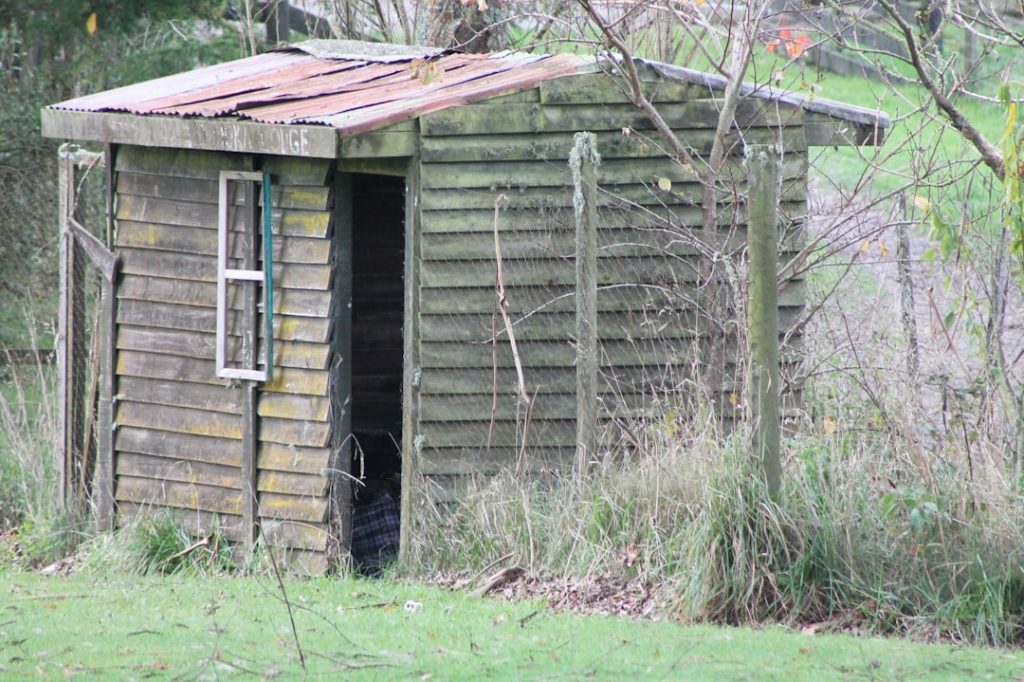Free range chickens are a type of poultry that thrive in open spaces and natural environments. These birds have the freedom to roam and forage for food, allowing them to exhibit natural behaviors such as scratching, pecking, and dust bathing. This lifestyle promotes better physical and mental health, resulting in healthier birds.
Free range chickens are independent and resourceful, requiring ample space to roam and explore. They are social creatures that benefit from living in flocks, which provides companionship and security. These birds have a strong instinct to forage for food, including insects, seeds, and plants, which contributes to their nutritional needs and overall well-being.
It is important to recognize that free range chickens are vulnerable to predators. Therefore, creating a safe and secure enclosure is crucial for their protection while still allowing them to enjoy their natural behaviors and freedom of movement. Understanding the specific needs of free range chickens is essential for creating an appropriate environment.
This includes providing sufficient space, access to natural food sources, social interaction with other chickens, and protection from potential threats. By meeting these requirements, caretakers can ensure that free range chickens lead fulfilling lives and exhibit their natural behaviors.
Table of Contents
Key Takeaways
- Free range chickens are natural foragers and enjoy roaming and exploring their environment.
- A secure enclosure with proper fencing and predator-proofing is essential for the safety of free range chickens.
- Providing a balanced diet and access to fresh water is crucial for the health and well-being of free range chickens.
- Implementing predator deterrents such as motion-activated lights and secure coop latches can help keep predators away from free range chickens.
- Enrichment activities such as dust baths, perches, and hanging treats can keep free range chickens entertained and stimulated.
Creating a Safe and Secure Enclosure
Designing the Enclosure
The enclosure should be constructed with sturdy fencing that is buried at least a foot into the ground to prevent predators from digging underneath. Additionally, the fencing should be tall enough to prevent predators from climbing over it. It’s also important to cover the top of the enclosure with netting or wire mesh to prevent aerial predators from swooping in.
The Coop: A Safe Haven
In addition to sturdy fencing, the enclosure should also include a secure coop where the chickens can roost at night and lay their eggs. The coop should be equipped with latches and locks to prevent predators from gaining access, and it should be well-ventilated to ensure good air circulation. Providing adequate lighting inside the coop can also help deter predators and provide a sense of security for the chickens.
A Safe and Secure Environment
By creating a safe and secure enclosure, you can protect free-range chickens from harm and allow them to roam freely without fear. This enclosure allows the chickens to live a healthy and happy life, free from the threat of predators and other potential dangers.
Providing Adequate Food and Water

Providing adequate food and water is essential for the health and well-being of free range chickens. These birds have a natural instinct to forage for food, so it’s important to provide them with access to a variety of natural foods such as insects, seeds, and plants. In addition to foraging, free range chickens should also be given a balanced diet that includes commercial poultry feed to ensure they receive all the necessary nutrients.
It’s important to provide fresh water at all times, as dehydration can lead to serious health issues for chickens. The water should be placed in a secure container that is easily accessible to the birds but protected from contamination. In addition to providing food and water, it’s important to monitor the chickens’ feeding habits and adjust their diet as needed.
For example, during molting or egg-laying periods, chickens may require additional protein or calcium supplements to support their health. Providing adequate food and water is crucial for the overall health and well-being of free range chickens, as it ensures they receive the necessary nutrients to thrive. Providing adequate food and water is crucial for the health and well-being of free range chickens.
These birds have a natural instinct to forage for food, so it’s important to provide them with access to a variety of natural foods such as insects, seeds, and plants. In addition to foraging, free range chickens should also be given a balanced diet that includes commercial poultry feed to ensure they receive all the necessary nutrients. It’s important to provide fresh water at all times, as dehydration can lead to serious health issues for chickens.
The water should be placed in a secure container that is easily accessible to the birds but protected from contamination. Monitoring the chickens’ feeding habits and adjusting their diet as needed is also important for their overall health and well-being. By providing adequate food and water, you can ensure that free range chickens receive the necessary nutrients to thrive.
Keeping Predators at Bay
Keeping predators at bay is crucial for protecting free range chickens from harm. Predators such as foxes, raccoons, and birds of prey pose a serious threat to these birds, so it’s important to take proactive measures to deter them. One effective method is to install motion-activated lights or sound devices around the chicken enclosure to startle potential predators and discourage them from approaching.
Additionally, using natural deterrents such as predator urine or predator decoys can help create a hostile environment for predators. Another effective way to keep predators at bay is by implementing good husbandry practices such as regularly cleaning up food scraps and securing trash bins to prevent attracting unwanted wildlife. It’s also important to inspect the chicken enclosure regularly for any signs of damage or potential entry points for predators.
By taking proactive measures and implementing good husbandry practices, you can effectively keep predators at bay and protect free range chickens from harm. Keeping predators at bay is crucial for protecting free range chickens from harm. Predators such as foxes, raccoons, and birds of prey pose a serious threat to these birds, so it’s important to take proactive measures to deter them.
Installing motion-activated lights or sound devices around the chicken enclosure can startle potential predators and discourage them from approaching. Using natural deterrents such as predator urine or predator decoys can also help create a hostile environment for predators. Implementing good husbandry practices such as regularly cleaning up food scraps and securing trash bins can prevent attracting unwanted wildlife.
Regularly inspecting the chicken enclosure for any signs of damage or potential entry points for predators is also important for keeping predators at bay. By taking proactive measures and implementing good husbandry practices, you can effectively protect free range chickens from harm.
Providing Enrichment and Entertainment
Providing enrichment and entertainment is essential for keeping free range chickens mentally stimulated and engaged. These birds are intelligent and curious by nature, so it’s important to provide them with activities that encourage natural behaviors such as scratching, pecking, and dust bathing. One way to provide enrichment is by scattering food around the chicken enclosure or hiding treats in various locations to encourage foraging behavior.
Additionally, providing perches or platforms inside the enclosure allows chickens to roost and observe their surroundings. Another way to provide enrichment is by introducing novel objects or toys into the chicken enclosure, such as hanging mirrors or hanging vegetables for pecking. These items can help alleviate boredom and provide mental stimulation for the birds.
It’s also important to allow free range chickens access to natural elements such as dirt or sand baths, which allow them to engage in natural dust bathing behavior. By providing enrichment and entertainment, you can keep free range chickens mentally stimulated and improve their overall well-being. Providing enrichment and entertainment is essential for keeping free range chickens mentally stimulated and engaged.
These birds are intelligent and curious by nature, so it’s important to provide them with activities that encourage natural behaviors such as scratching, pecking, and dust bathing. Scattering food around the chicken enclosure or hiding treats in various locations can encourage foraging behavior, while providing perches or platforms inside the enclosure allows chickens to roost and observe their surroundings. Introducing novel objects or toys into the chicken enclosure, such as hanging mirrors or hanging vegetables for pecking, can help alleviate boredom and provide mental stimulation for the birds.
Allowing free range chickens access to natural elements such as dirt or sand baths also allows them to engage in natural dust bathing behavior. By providing enrichment and entertainment, you can keep free range chickens mentally stimulated and improve their overall well-being.
Monitoring Health and Well-being

Regular Health Checks
Regular health checks should include observing the birds’ behavior, examining their physical appearance, and monitoring their eating and drinking habits. Any changes in behavior or appearance should be noted and investigated further if necessary.
Preventative Care
In addition to regular health checks, it’s essential to provide preventative care such as vaccinations against common poultry diseases and parasites. Keeping the chicken enclosure clean and well-maintained can help prevent the spread of disease and maintain good hygiene for the birds.
Maintaining Good Health
Providing a balanced diet with access to fresh water at all times is crucial for maintaining good health. By combining regular health checks, preventative care, and a healthy environment, you can help ensure the well-being of your free-range chickens.
Training Chickens to Return Home
Training free range chickens to return home at night is essential for their safety and security. Chickens have a strong instinct to roost at night for protection from predators, so it’s important to establish a routine that encourages them to return to their coop before dark. One effective method is by providing treats inside the coop at dusk to entice the chickens back home.
Another method is by using positive reinforcement training techniques such as clicker training or using a specific call or sound signal that signals it’s time to return home. By consistently using these methods, free range chickens can be trained to return home at night on their own accord. Training free range chickens to return home at night is essential for their safety and security.
Chickens have a strong instinct to roost at night for protection from predators, so it’s important to establish a routine that encourages them to return to their coop before dark. Providing treats inside the coop at dusk can entice the chickens back home, while using positive reinforcement training techniques such as clicker training or using a specific call or sound signal can help train them to return home at night on their own accord. In conclusion, understanding the nature of free range chickens is crucial for creating an environment that meets their specific needs.
These birds require ample space to roam and explore while also having access to natural foods such as insects, seeds, and plants. Creating a safe and secure enclosure is essential for protecting free range chickens from predators, while providing adequate food and water ensures their overall health and well-being. Keeping predators at bay through proactive measures helps protect these birds from harm, while providing enrichment and entertainment keeps them mentally stimulated.
Monitoring their health regularly allows for early identification of potential issues, while training them to return home at night ensures their safety and security.
If you’re looking for more tips on how to keep free range chickens safe at home, you might want to check out this article on chicken coop door size. It offers valuable information on the importance of the size of the coop door and how it can affect the safety and well-being of your chickens. This article, along with the other resources on Poultry Wizard, can help you create a secure and comfortable environment for your free range chickens.
FAQs
What are free range chickens?
Free range chickens are poultry that are allowed to roam freely outdoors, rather than being confined to a cage or enclosure. They have access to natural sunlight, fresh air, and a variety of plants and insects for foraging.
How can I keep free range chickens home?
To keep free range chickens home, you can use fencing to create a secure outdoor area for them to roam. Make sure the fencing is tall enough to prevent them from flying over, and bury it underground to prevent digging. Providing them with plenty of food, water, and shelter within the enclosed area can also help keep them from wandering too far.
What are the benefits of keeping free range chickens home?
Keeping free range chickens home can help protect them from predators, reduce the risk of them getting lost or injured, and prevent them from causing damage to neighboring properties. It also allows you to better monitor their health and well-being.
Are there any legal requirements for keeping free range chickens home?
The legal requirements for keeping free range chickens home can vary depending on your location. Some areas may have zoning laws or regulations regarding the fencing and containment of poultry. It’s important to check with your local government or agricultural extension office to ensure you are in compliance with any relevant laws or ordinances.
What are some tips for keeping free range chickens home?
Some tips for keeping free range chickens home include providing them with a secure and spacious outdoor area, regularly checking the fencing for any damage or weaknesses, and providing them with plenty of enrichment and stimulation to prevent them from wanting to wander too far. Additionally, training them to return to their coop at night can help keep them safe and secure.
Meet Walter, the feathered-friend fanatic of Florida! Nestled in the sunshine state, Walter struts through life with his feathered companions, clucking his way to happiness. With a coop that’s fancier than a five-star hotel, he’s the Don Juan of the chicken world. When he’s not teaching his hens to do the cha-cha, you’ll find him in a heated debate with his prized rooster, Sir Clucks-a-Lot. Walter’s poultry passion is no yolk; he’s the sunny-side-up guy you never knew you needed in your flock of friends!







